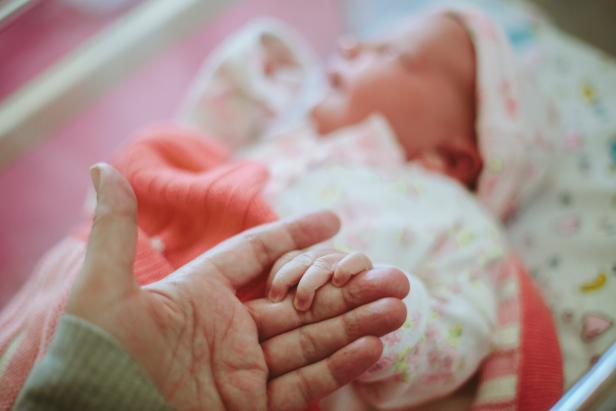A Scientist Who Lost Her Baby to SIDS May Have Found the Cause of the Mysterious Syndrome
This breakthrough study could save millions of babies.

Sally Anscombe

New research is offering insight into what has largely been a medical mystery — what causes Sudden Infant Death Syndrome (SIDS)? According to the CDC, over 1,000 babies die each year from SIDS, and until recently, doctors and medical experts weren’t sure what caused babies to die in their sleep during the first year of their life.
The study, led by researchers in Australia and published this week in the medical journal eBioMedicine, found that babies who died due to SIDS had lower levels of an enzyme known as Butyrylcholinesterase (BChE). Experts say BChE plays a major role in the brain's arousal pathway, and low levels of BChE would reduce a sleeping infant's ability to wake up or respond to its environment.
For the study, researchers looked at dried blood samples from 722 babies. Of those samples, were 26 babies who later died of SIDS, 41 infants who died of other causes, and 655 surviving infants. Researchers also looked at 10 blood samples of babies who were born on the same day and were the same gender as the babies who died from SIDS. What they found was the babies who died of SIDS had much lower levels of BChE days after birth.
Behind this groundbreaking research that will change the lives of babies and their families is the lead researcher, Dr. Carmel Harrington. Close to 30 years ago, Dr. Harrington lost her son, Damien, to SIDS. The grieving mother was told to "go home and enjoy [her] living babies and have more."
However, she dedicated her life to finding a cause. She quit her job as a lawyer and returned to her former career as a research biochemist.
"An apparently healthy baby going to sleep and not waking up is every parent's nightmare and until now, there was absolutely no way of knowing which infant would succumb," Harrington said. "But that's not the case anymore. We have found the first marker to indicate vulnerability prior to death."
While safer sleep practices have been parents' only line of defense against SIDS, Harrington is hopeful this study will give parents more medical options.
"Babies have a very powerful mechanism to let us know when they are not happy," Harrington told The Sydney Children’s Hospital Network. "Usually, if a baby is confronted with a life-threatening situation, such as difficulty breathing during sleep because they are on their tummies, they will arouse and cry out. What this research shows is that some babies don’t have this same robust arousal response."
While this groundbreaking study is amazing news for parents and babies, there is still a lot that has to be researched and investigated before steps can be taken to screen babies for low levels of BChE and to put together the best plan of action for those babies.
"This discovery changes the narrative around SIDS and is the start of a very exciting journey ahead," Harrington told The Sydney Children’s Hospital Network. "We are going to be able to work with babies while they are living and make sure they keep living."
For millions of parents, parents-to-be, and the parents who have heartbreakingly lost a child to SIDS, this breakthrough seems like a giant step in the right direction.
YOU MIGHT ALSO LIKE:















